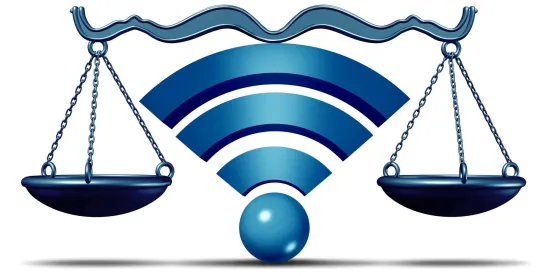In April, the Federal Communications Commission (FCC or Commission) adopted its Net Neutrality Order which once again reclassified Broadband Internet Access Service (BIAS) as a Title II, common carrier service. The stated raison d’etre for the move was to provide a statutory vehicle, which the Commission found in the Communications Act’s common carrier rubric, for the Commission to impose Open Internet requirements that bar blocking, throttling, paid prioritization, and unreasonable interference by broadband providers. While the Commission professed that in doing so it was also forbearing from imposing on broadband providers a raft of common carrier requirements typically reserved for phone companies, buried throughout the Net Neutrality Order were a host of common carrier requirements adopted over the last several years intended to protect various consumer and competitive interests, that were being imposed on providers of broadband services.
Of particular note for owners and managers of commercial and residential properties, broadband-only providers serving multi-tenant environments (MTEs), such as apartment buildings, condominium buildings, shopping malls, and commercial office buildings, will be subject to the same regulatory requirements that had been imposed on the provision of broadband services by regulated telecom carriers and cable providers. As a result, BIAS-only providers will be required to comply with the Section 201(b) of the Communications Act, 47 U.S.C. § 201(b), barring unfair, unreasonable, and anticompetitive practices. This could potentially subject broadband-only providers to both consumer complaints at the Commission or in the courts, as well as potential FCC enforcement action for practices that might run afoul of this provision or other Commission rules.
Over the years, the Commission has adopted provisions prohibiting exclusive arrangements between telecom carriers and cable operators on the one hand, and residential and commercial MTEs, most recently extending those prohibitions to broadband services provided by telecom providers, cable operators and their affiliates. See 47 C.F.R. § 64.2000. With the Net Neutrality Order, these MTE exclusivity prohibitions have been extended to broadband-only providers, which are now deemed common carriers subject to the rules, including those that are affiliated with the property owners themselves. Thus, BIAS-only providers are prohibited from entering into any exclusive MTE access agreements with residential or commercial MTE properties. Under the MTE exclusivity provision, broadband-only providers are also prohibited from entering into graduated revenue sharing arrangements with residential or commercial MTE owners; however, flat licensing fees not tied to revenue are still acceptable. Finally, broadband-only providers must also disclose to tenants any exclusive marketing arrangements with MTE owners and managers.
In addition, as recently reported, FCC Chairwoman Rosenworcel along with her fellow commissioners, are floating a proposal to regulate bulk billing arrangements in residential MTEs, that if adopted, would prohibit MTE owners from requiring tenants to pay for broadband, cable, or satellite service under a bulk-billing arrangement. Tenants would instead be permitted to opt out of such arrangements. As with the exclusive access prohibitions, the bulk billing prohibition would be undoubtedly tied to the Commission’s authority under the Communications Act to regulate telecom carriers and cable operators. If adopted, those requirements would likely be applied to broadband-only providers, who are now classified as common carriers subject to the Commission’s Title II jurisdiction.
As provided in the Order, BIAS-only providers were to be subject to these requirements beginning July 22, 2024. With respect to pre-existing MTE-related contracts, the Commission temporarily waived the MTE exclusivity provisions for 180 days to allow BIAS-only providers time to bring their pre-existing contracts into compliance with the rules.
Various parties, however, have now filed court challenges to the Net Neutrality Order, which have been consolidated in the Sixth Circuit. In connection with those challenges, the court granted a temporary stay of the net neutrality rules pending additional briefing on a threshold question in the appeal. As a result, the applicability of the MTE exclusivity prohibitions to broadband-only providers are not yet in effect, and the fate of the entire net neutrality regime remains uncertain. Consequently, broadband-only providers serving MTEs who might not ordinarily pay close attention to FCC developments, should keep an eye on the progress of the appeal and the status of the temporary stay. Such providers should also work closely with MTE owners to determine a compliant path forward should the new regulatory regime applicable to providers of broadband-only services go into effect.






 />i
/>i

